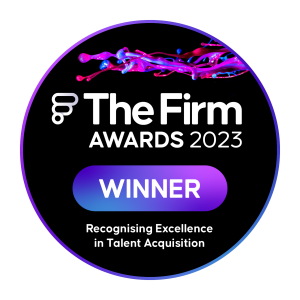What is Artificial Intelligence (AI)?
Artificial Intelligence (AI) is a simulation of human intelligence in machines that are programmed to think and act like humans and is often used for problem-solving and allows machines to learn from experience. AI For Recruiting is a new topic for most in the industry.
AI isn’t a new phenomenon but has been around since the 1930s when the first rudimentary forms of AI were created. In the 1950s, it was used to explore topics like problem-solving and symbolic methods.
Today, we often equate AI with Terminator-like robots taking over the world, but that’s just Hollywood myth and storytelling. AI has evolved to become pivotal in banking, flagging fraud, to self-driving cars and in managing recruitment processes amongst many others.
To illustrate the impact AI will have on the UK economy, a report by McKinsey has estimated that by 2030 AI could deliver a boost to GDP of 22%.
What is the need for AI in recruitment?
AI speeds up recruitment by removing the time-consuming manual tasks that are more effectively done by AI, leaving the recruiter to focus on what they do best, finding outstanding candidates for their client’s vacant jobs.
AI not only helps recruiters but reduces the workload of hiring managers by automating all the tasks they get involved with, especially if the recruitment is urgent as manual CV processing is too slow and inefficient.
This year, companies have seen unprecedented volumes of applicants for jobs at all levels with many roles attracting thousands of applicants when previously they might have had significantly fewer. Without automation, suitable candidates would be missed amongst the deluge of CVs and poor hiring decisions may be made, possibly resulting in the need to re-hire in a few months.
Candidate sourcing is one of the most vital yet time-consuming aspects of recruitment. AI can now actively search through more than 300 million social profiles and job boards to match candidates to jobs. Once it has identified potential candidates for your recruitment pipeline, the sourcing automation technology can send automated messages to keep them engaged.
Additionally, AI technology is being used to screen past candidates for current roles and rank them based on the job criteria, identifying suitable candidates who may have been missed or forgotten.
Given the rise in outsourcing, in part due to the ongoing pandemic, recruiting for remote workers is on the up and this trend is set to continue. However, recruiting remote workers has its challenges as the recruitment process will often need to be remote too.
Assessing organisational fit, personality and skills can be undertaken using AI-powered pre-employment assessment tools and interviewing can be achieved remotely using video technology which has the advantage of not limiting you to regular office hours.
In 2020, 76% of recruiters believe the impact of AI is at least somewhat significant and helps them recruit when they are faced with high volumes of CVs.
How is AI revolutionising the recruitment process, and what are the benefits?
AI has had the effect of simplifying the recruitment process for talent professionals and changed how they work.
Here are some ways AI is revolutionising recruitment.
Candidate screening to create a candidate shortlist has simplified the process. Using a resume parser, you can extract data from a CV and insert it into data fields, making comparison and selection more straight forward.
Match technology helps with matching candidates to job descriptions. It uses synonym matching for domain, skills, tools, locations and education to accurately match candidates to roles so you don’t miss excellent candidates that may have otherwise slipped through the net.
CV enrichment lets you automatically search through a candidate’s social network for up to date information, and you can access all the information required through the email ID of a candidate.
The benefits of the AI revolution in recruitment are numerous.
They say time is money, and with AI, the time savings are enormous. AI software needs only seconds to analyse a tremendous amount of data allowing decision-makers to make faster, more accurate recommendations and improve the quality of candidates hired.
An interesting development that has become increasingly important in 2020 is the subject of diversity hiring. A diverse workforce comes with many inherent advantages for employers, including:
- Improved innovation and creativity
- Positive for your brand
- Increases workforce skills and experiences pool
- Improved, happiness, productivity and retention
There are several AI-driven solutions to improve a company’s diversity hiring process. 56% of candidates who say they’ve experienced discrimination believe that AI is less biased, and 49% believe AI will improve their chances of being hired.
These AI-powered solutions include chatbots, pre-employment assessments and blind hiring.
Candidate assessment has been improved with the help of predictive analytics which lets you know the job-changing behaviour of a candidate. Having relevant candidate information helps you assess the right candidate and promotes better talent hiring.
By using AI, recruiters can improve the quality of the candidates that are hired, speed up the process and remove biases. Other areas where AI is improving the candidate experience is through the use of Virtual reality to allow a candidate to experience the workplace and mobile apps to speed up communication with recruiters.
The future of AI For Recruiting
According to Matt Alder, a reputable British HR thought leader and host of the podcast, Recruiting Future, AI For Recruiting and hiring is at the stage where it gives us information about what’s happening currently and to a limited degree can show us a predicted view of the future. However, currently, AI can’t prescribe what we should do with this information or make those decisions for us.
The assertion in a report released by Deloitte and Oxford University in 2013 that by 2030 35% of all jobs would be automated seems unlikely, at the moment, to affect recruitment professionals.
Removing repetition tasks and improving predictive recruitment analytics which will help recruiters to close jobs more quickly than manual candidate evaluation is already here but we’re not at the stage of estimating a candidates behaviour to speed up the process.
Candidate contact – keeping them updated on roles, interview progression and answering questions will be handled by chatbots. They’ll be able to send follow up emails automatically, give feedback and let candidates know about relevant roles.
It’s predicted that 85% of the jobs in 2030 haven’t been thought of yet, so even if we lose the repetition administration tasks to AI For Recruiting, it would open up countless opportunities to get involved in more challenging, innovative work.
AI is here to stay for now and makes recruitment easier and more efficient for recruiters, candidates and hirers.
If you enjoyed this blog post, please have a look at some of our other posts:
Developing an agile workforce in a new era
How to Become an Exceptional Hiring Manager
Should the number of vacancies be the measurement of workload?



